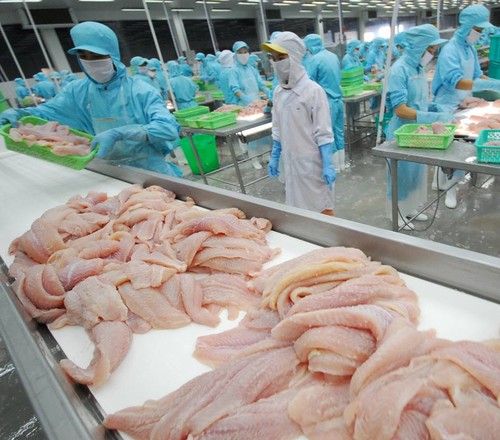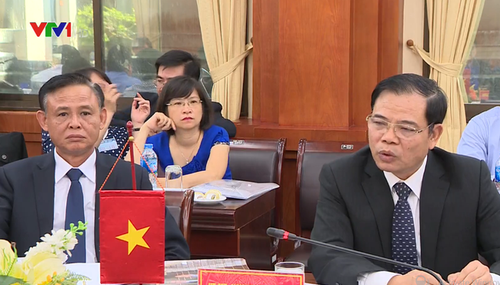
Vietnam is building a sustainable and responsible fishery in line with international regulations. (Photo: baochinhphu.vn)
|
In June, the EU continued to extend the its yellow card warning. It sent a seven-member delegation from the European Parliament’s Committee on Fisheries to inspect and measure Vietnamese efforts in the work. They praised Vietnam’s efforts to combat IUU fishing, adding that the EC’s recommendations are the common responsibility of both sides towards building a sustainable fishery. The EU asked Vietnam to devote more resources to the traceability of the origin of their seafood exports, better manage fishing boats in territorial waters, facilitate the equipping of a monitoring system for fishing boats, and develop sanction mechanisms against IUU fishing.
The EU’s yellow card warning has affected Vietnam’s exports to the EU because all shipments had to be returned due to the EU’s requirement of adhering to a pre-market test. The decision has resulted in higher production costs.

Minister of Agriculture and Rural Development Nguyen Xuan Cuong (R) at the recent working session in Hanoi with the delegation from the European Parliament’s Committee on Fisheries. (Photo: vtv.vn)
|
Minister of Agriculture and Rural Development Nguyen Xuan Cuong said: “The first step is the issuance of a yellow card warning for exporters to the EU to compel them to comply with regulations. It will be followed by a red card if the IUU issue is not resolved. This means that marine products of that country will be banned from entering the EU market. Vietnam considers the EU’s nine recommendations suitable to Vietnam. Because we must change for the industry’s sustainable development, for 1 million workers in the sector, and more than 100,000 fishing boats. The recommendations are appropriate to Vietnam’s efforts to build a sustainable fishery.”
To meet the three IUU criteria set for seafood imported into the EU, Vietnam has implemented various measures.
Last November, the National Assembly approved the revised Fisheries Law which has mainstreamed nine EU recommendations. The move illustrates Vietnam’s political determination in developing its fishery responsibly and sustainably. To prove its compliance with EU regulations, Vietnam has upgraded its infrastructure, tightened fishing regulations in asking fishermen to report on their fishing grounds and fishing products. Vietnam has also built anchorages and fishing ports pursuant to international standards.
Minister Cuong said Vietnam hopes the EC will soon remove the warning to Vietnam’s fishing activities.
“The Vietnamese government has issued a plan of action to remove the yellow card warning under which all 28 coastal provinces, ministries, sectors, departments, businesses, and fishermen must take responsibility for the work. Specifically, Chairmen of the People's Committees of the 28 provinces should be responsible for not letting fishermen fish illegally in foreign waters. Secondly, after fishing, fishermen, captains, and crew members must report to the authorities of fishing ports where they did the fishing. Third is to comply with EU recommendations and upgrade infrastructure facilities, for example, ports,” Minister Cuong added.
Vietnam is working with the EU and its partners to develop a sustainable fishery and considers it a key task in the near future. Vietnam hopes the EU will have a positive assessment in January next year and a decision on the yellow card removal is expected soon afterwards.